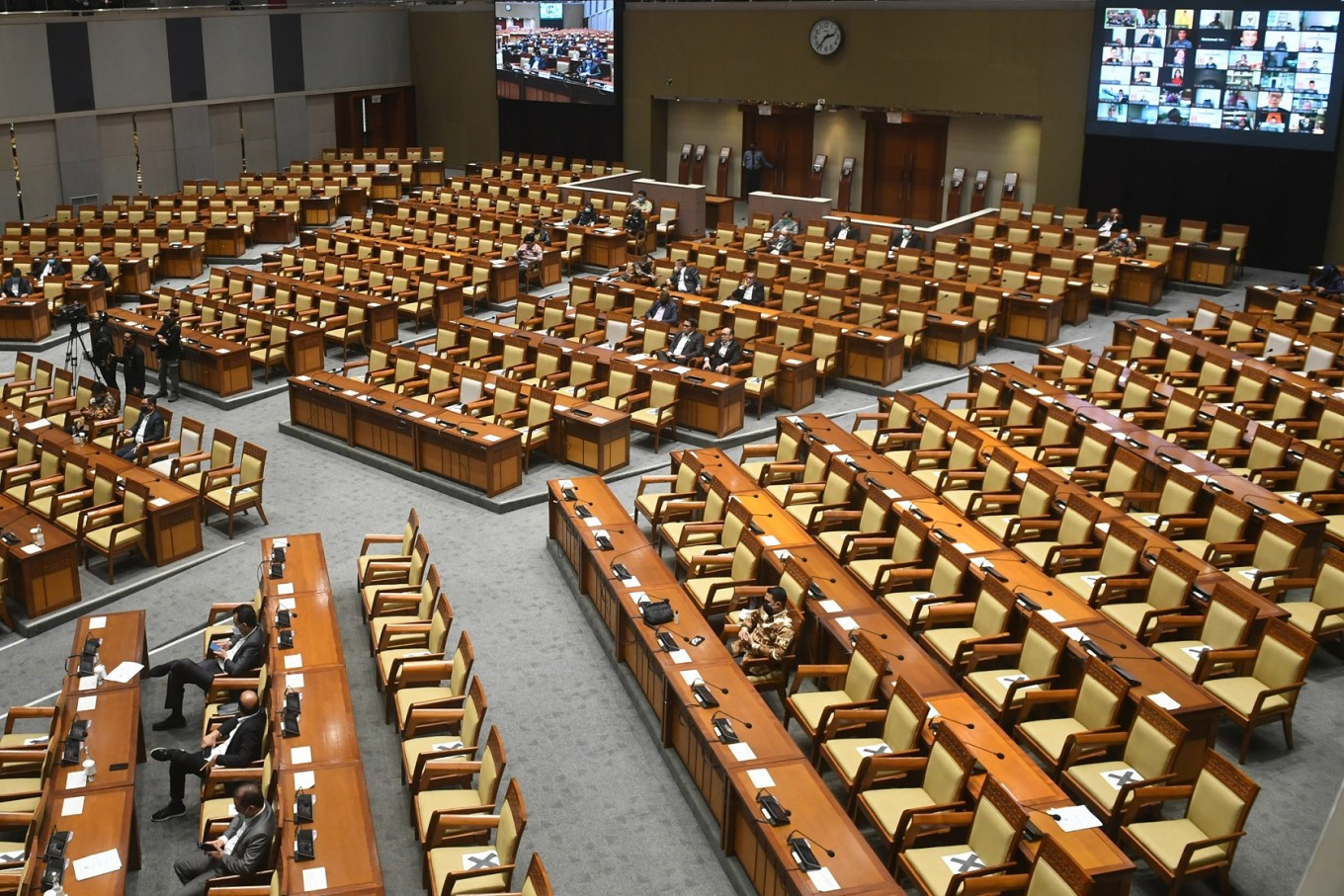News
Legislation program is easier to start, harder to finish
Tenggara Strategics October 1, 2025 Some lawmakers of the House of Representatives attend the plenary meeting on the endorsement for 2019 state budget implementation bill (P2APBN) in the House's complex in Senayan, Central Jakarta while others joined the meeting virtually on Sept. 15. (Antara/Puspa Perwitasari)
Some lawmakers of the House of Representatives attend the plenary meeting on the endorsement for 2019 state budget implementation bill (P2APBN) in the House's complex in Senayan, Central Jakarta while others joined the meeting virtually on Sept. 15. (Antara/Puspa Perwitasari)
The House of Representatives has added 52 draft bills to the second amendment of the 2025 National Legislation Program (Prolegnas), an increase from the initial 41. Meanwhile, the number of bills prioritized for 2026 stands at 67. Beyond this matter of quantity, the House must place greater emphasis on the quality of legislation, ensuring that laws reflect the interests of the people rather than serving only a few elites within the ruling coalition.
During the 2019–2024 term, the House passed 225 laws, a significant improvement from the 91 laws endorsed in the 2014–2019 term. However, this figure still fell short of the 248 bills listed in the 2020–2024 Prolegnas, of which only 126 were enacted.
Commission II of the House, which oversees governance and home affairs, contributed the largest share, with 80 laws passed by August 2024. This relatively high number can be attributed to the normative nature of regional laws, which serve as the legal foundation for provincial, city and regency administrations.
A closer look at the timeline reveals a legislative rush, with 92 laws passed in 2024–2025 alone, the final year of the term. In preceding years, the numbers were considerably lower: Six laws in 2019–2020, nine in 2020–2021, 32 in 2021–2022, 23 in 2022–2023 and 63 in 2023–2024. The quality of legislation also came under scrutiny, with several controversial laws passed, such as the new Corruption Eradication Commission (KPK) Law, omnibus Job Creation Law, the State Capital Law (IKN), the new Criminal Code (KUHP) and the Law on State Ministries.
Meaningful public participation has been a central concern raised by prodemocracy groups regarding the legislative process, leading to several judicial review cases brought before the Constitutional Court. During this period, the opposition bloc in the House was simply ineffective, with the Prosperous Justice Party (PKS) as the sole consistent opposition after the Democratic Party joined the government later in president Joko "Jokowi" Widodo’s administration.
For the 2024–2029 term, the public is pressing the government to prioritize deliberation of the long-delayed Asset Forfeiture Bill, which is widely regarded as crucial for addressing fraud and a major obstacle to national growth. The proposed law is seen as a strong deterrent against corruption, enabling the recovery of illicit assets to the state treasury for public use. Calls for this law had already emerged during the previous term but stalled because of a lack of political will from party leaders. Large demonstrations late last month once again amplified demands for the government and legislature to move forward with this critical legislation.
Although all parliamentary factions have expressed support for deliberating the Asset Forfeiture Bill, none have taken proactive steps to formally initiate its drafting. According to the leader of the Confederation of the All-Indonesian Workers’ Union (KSPSI), President Prabowo Subianto has committed to discussing the matter with House Speaker Puan Maharani to ensure the bill is prioritized.
In principle, the House is dominated by progovernment parties, with only the Indonesian Democratic Party of Struggle (PDI-P) acting as a partial counterbalance. This composition should, in theory, facilitate the passage of the government’s legislative initiatives. On several occasions, even PDI-P lawmakers have lent their support to key government programs.
In controversial cases, however, such as the Indonesian Military (TNI) Law, the House has appeared to serve as a political instrument for the government. Formally, the House initiated the revision, but substantively, the content reflected the government’s agenda, despite widespread public opposition.
This dynamic underscores that if the government and its allied political forces—including those in the House—are genuinely committed to enacting legislation demanded by the public, such as the Asset Forfeiture Law, there should be little standing in their way.
What we've heard
Sources within the House indicate that many of the laws enacted during the 2019–2024 period appear to lack substantial legal weight, as their implementation has never been meaningfully accounted for. This includes laws ratifying international agreements with other countries, particularly in the defense sector. According to these sources, the ratification process—ultimately formalized into law—was largely a procedural exercise, with little to no substantive discussion taking place.

